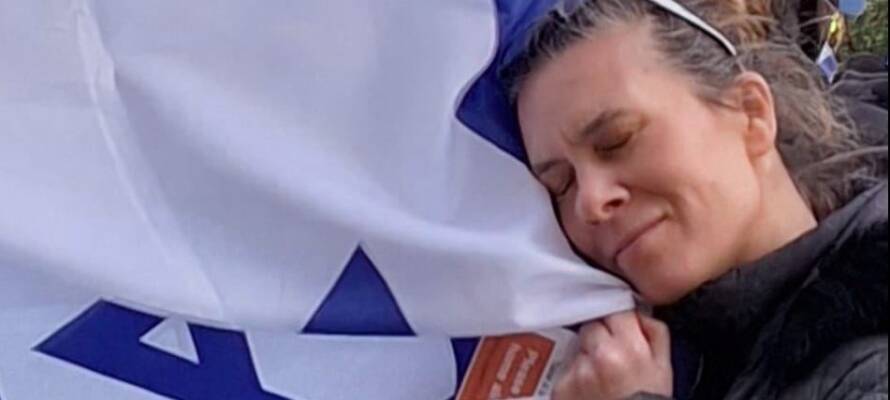A mentoring program was developed to match high schoolers with kindergarten-aged children.
By Debbie Weiss, The Algemeiner
Since the Hamas terror group’s Oct. 7 massacre, immigrants who moved to Israel (olim in Hebrew) have been helping the Jewish state’s war effort in crucial ways beyond the battlefield. The Algemeiner has spoken to several of these individuals — natives of the US, Europe, and elsewhere — gathering their stories of courage and resourcefulness to help Israel prevail over Hamas in Gaza. Over the coming weeks, The Algemeiner will share some of these stories as a new series on how olim are helping Israel’s war effort.
Two days after Hamas’ violent assault on Oct. 7, New York native Nike Silberstein opened an online school for Israeli children.
Silberstein, who made aliyah — the process of Jews immigrating to Israel — in 2013 and divides her time between New York and Tel Aviv, said that she “felt desperate” watching the horror unfold from afar and knew she had to contribute to the war effort.
“It wasn’t a choice; I felt the anguish, the intense worry of parents in Israel. I needed to support them,” Silberstein, who has more than 20 years of experience as an educator both in New York and Israel, told The Algemeiner. “I knew anyone with kids in Israel was not going to be able to function regularly and that I needed to jump in.”
For more than a month after the attack, there was no school at all in most Israeli cities. Some resumed studies remotely, but even now, a good solution remains elusive, with many schools still operating under the threat of rocket fire and the call-up of vast numbers of faculty members to the army.
On Oct. 8, Silberstein put out a call for volunteer teachers, and by Oct. 9, the school was up and running. She named the school, which operates on Zoom, Sha’agat Arieh (which translates to “the lion’s roar”), inspired by her late father, Arieh, who she said “roars from above like a lion.”
Silberstein gave another reason too: “Ask a child to roar, and when they do, there’s a second they really believe they’re lions and it’s amazing to witness. They feel empowered, and I wanted to strengthen the children of Israel.”
More than a thousand children have attended Sha’agat Arieh to date, and not all are in Israel. Some are the children of Israelis who either fled Israel after the war to countries like Greece and Portugal or others who reside abroad permanently. The classes include everything from academic studies like math and science to enrichment classes such as karate and art. They are all taught by volunteer teachers, many of whom must either go to bed at extremely late hours or wake up very early to allow for the time difference.
Even as Israeli schools resume normal functioning, many students have still decided to take Sha’agat Arieh’s classes after returning home. Silberstein also said the school has expanded to other functions as the needs evolve. For example, she has partnered with Israel’s Education Ministry to twin Israeli schools with Jewish schools abroad and has developed a mentoring program matching high schoolers with kindergarten-aged children. Volunteer teachers are also giving private tutoring to Israeli children who are struggling.
“We all are just trying to help where we can,” Silberstein said. “I’m just trying to stay completely open to all the education-related needs in Israel and how I, from abroad, can help.”
